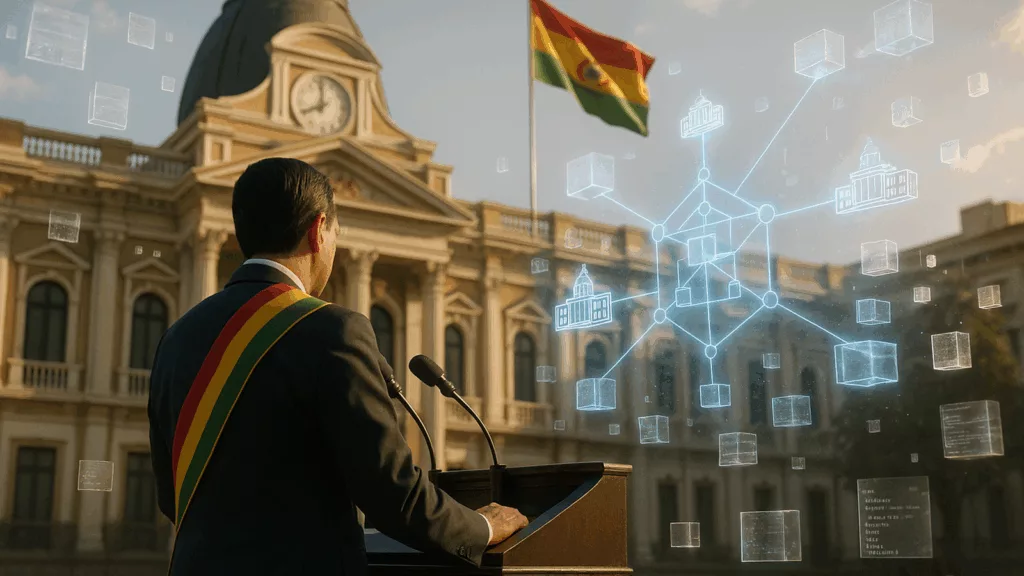- President-elect Rodrigo Paz plans to use blockchain and smart contracts for transparent public procurement.
- New government initiative to allow citizens to declare crypto assets for a foreign-exchange stabilization fund.
- Bolivia continues shifting toward regulated crypto use following the central bank’s 2024 policy reforms.
La Paz, Bolivia President-elect Rodrigo Paz is turning to blockchain technology as a cornerstone of his government’s anti-corruption and modernization strategy. The centrist leader, who won Sunday’s runoff election with 54.5% of the vote against Jorge Quiroga’s 45.5%, is set to take office on November 8, according to the Associated Press.
Facing an economy burdened by fuel shortages and U.S. dollar scarcity, Paz’s administration plans to apply blockchain and smart contracts in public procurement to bring transparency to state spending. According to the Partido Demócrata Cristiano’s 2025 platform, the proposal aims to reduce discretion in government purchasing by automating contract processes through blockchain.
Crypto assets to support new stabilization fund
Beyond procurement reform, the Paz administration intends to integrate crypto assets into a foreign-exchange stabilization fund designed to strengthen Bolivia’s financial resilience. Citizens would be allowed to declare digital assets as part of an asset regularization initiative, effectively widening the pool of resources available for currency stabilization and essential imports.
Newsletter
Get weekly updates on the newest crypto stories, case studies and tips right in your mailbox.
According to the U.S. Treasury Department, such funds are typically used to manage exchange rates and maintain economic stability. Including crypto assets offers a flexible way for Bolivia to mobilize additional reserves without having to hold volatile tokens directly.
While Paz’s plan signals a pro-innovation and pragmatic approach, he has not expressed intentions to adopt Bitcoin (BTC) as legal tender or include it in national reserves. Instead, his focus remains on blockchain’s utility as an anti-corruption tool and crypto’s role in monetary stabilization.
Bolivia’s growing crypto adoption
Bolivia’s pivot toward digital finance began in 2024, when the Banco Central de Bolivia lifted its operational ban on crypto transactions. The reform allowed regulated institutions to facilitate crypto payments, marking a turning point for the country’s financial sector.
Following the regulatory shift, monthly digital asset trading doubled, the central bank reported. In October 2024, Banco Bisa became Bolivia’s first bank to offer USDT custody services for institutional clients, while state oil company YPFB explored using crypto for energy imports amid dollar shortages.
By September 2025, major automotive distributors including Toyota, Yamaha, and BYD had begun accepting USDT payments, signaling growing merchant adoption. Earlier, on July 31, the central bank signed a memorandum of understanding with El Salvador, describing crypto as a “viable and reliable alternative” to traditional fiat systems.
The central bank reported $46.8 million in monthly crypto trading volume and $294 million year-to-date by mid-2025, underscoring Bolivia’s accelerating integration of blockchain and digital assets into its financial ecosystem.













